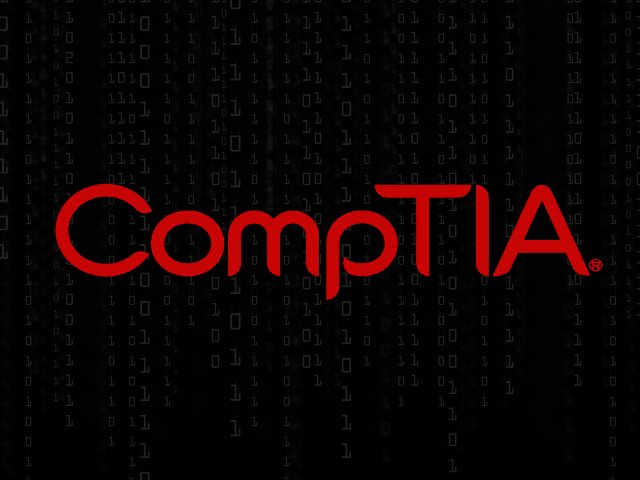CompTIA - The cloud becons
By Staff Writer 3 November 2011 | Categories: sponsored content
 Cloud computing is one of the most hyped IT strategies in recent years, with technology vendors scrambling to provide cloud-enabled technologies and businesses trying to figure out if this new model can deliver on its promises of cost savings and business efficiencies.
Cloud computing is one of the most hyped IT strategies in recent years, with technology vendors scrambling to provide cloud-enabled technologies and businesses trying to figure out if this new model can deliver on its promises of cost savings and business efficiencies.
Beyond the hype, cloud is indeed a strategy that proves beneficial to end-users and profitable for technology solution providers. Cloud-based, business-class solutions are accessible, affordable and available today for businesses of all shapes and sizes.
One thing is certain: the cloud computing market is still on pace for rapid growth.
Consider the following recent statistics:
- Research firms IDC predicts the public cloud market to grow from $16 billion in 2009 to $27.4 billion in 2014. This represents growth at over five times the rate for traditional IT products.
- While global IT services spending totaled $793 billion in 2010, representing 3.1% growth year on year, Gartner expects 6.6% growth in 2011 to $846 billion, partly driven by the growing adoption of cloud services.
- More than half (56%) of the organisations surveyed for CompTIA's Second Annual Trends in Cloud Computing study, published earlier this year, said their investment in cloud computing will increase by 10% or more over the next 12 months.
With cloud computing, a small company can look like a big company because they have easy and affordable access to a broad expanse of applications and services that not long ago were available only to deep-pocketed large enterprises.
Another big advantage of the cloud is that an SMB can access the computing capacity it needs when it's needed, and not have expensive excess capacity sitting idle during non-peak times. With cloud computing an SMB can dial up a 20-lane highway of network capacity for its two busiest hours of the day, and scale back to two lanes of capacity for the other 22 hours. The pay-as-you-go cloud model eliminates the start-up costs associated with purchasing, maintaining and upgrading new IT hardware and software.
Cloud resources available from CompTIA
As the leading trade association for the global IT industry, CompTIA has invested significant resources in the last few years on cloud computing initiatives - on market research; on education training and tools for IT solution provider companies. Most recently also on a new cloud skills certification for IT professionals.
Among the cloud education and training programs available through CompTIA are the Cloud Channel Training Workshop, a one-day fast-track course intended to help solution providers take advantage of the substantial business opportunities in delivering cloud solutions to customers, and to help them recognise the differences between selling traditional software licenses and offering cloud services. Workshop attendees learn how to develop a successful services practice in support of cloud solutions by leveraging best practices on how to market and sell cloud solutions and manage ongoing customer relationships.
The CompTIA Quick Start Sessions (bit.ly/compses) are 45-60 minute presentations that offer solution providers a simple "how to" approach to start a new business model or practice. The presentation on cloud provides a basic education on cloud computing and offers actionable steps for IT channel leaders attracted to this emerging technology delivery model. Session attendees also receive the CompTIA Cloud/SaaS Quick Start Guide (bit.ly/compqsguide).
A broad selection of printed and downloadable guides for the IT channel is available from CompTIA's library of resources (bit.ly/compresource). These guides include fast-fact information sheets, advanced self-guided workbooks that help solution providers enter into a new business market within 10 weeks; and whitepapers.
For individual IT workers, CompTIA, in partnership with ITpreneurs, the leading provider of competence development solutions for IT best practices, will this year introduce a new cloud computing skills credential. Scheduled for availability this December, the CompTIA Cloud Essentials certification exam will validate knowledge and understanding of cloud computing principles and concepts, including what cloud computing means from a business and technical perspective and what's involved in moving to and governing the cloud.
Given that the majority of cloud deployments today and into the foreseeable future are a mix of public clouds, private clouds and on-premise equipment from different vendors, a vendor-neutral certification such as CompTIA Cloud Essentials will prepare IT professionals to work with confidence in any cloud environment. Exam content was development in consultation with subject matter experts from leading organisations in the cloud computing market, including Amazon, Citrix, Google, Microsoft, Rackspace and VMware.
The certification is intended for IT professionals who work in companies utilising cloud computing solutions today, or contemplating doing so; and individuals involved in the selling of cloud services. Though not required, it's recommended that candidates for the CompTIA Cloud Essentials exam have a general working knowledge of how an internal or external IT organisation operates and has one to two years of IT experience.
About the Author
Todd Thibodeaux is the president and chief executive officer of CompTIA, a non-profit trade association dedicated to advancing growth of the information technology industry through educational programs, market research, networking events, professional certifications and public advocacy.
The article was first published in TechSmart 98, November 2011.
Most Read Articles

Have Your Say
What new tech or developments are you most anticipating this year?



